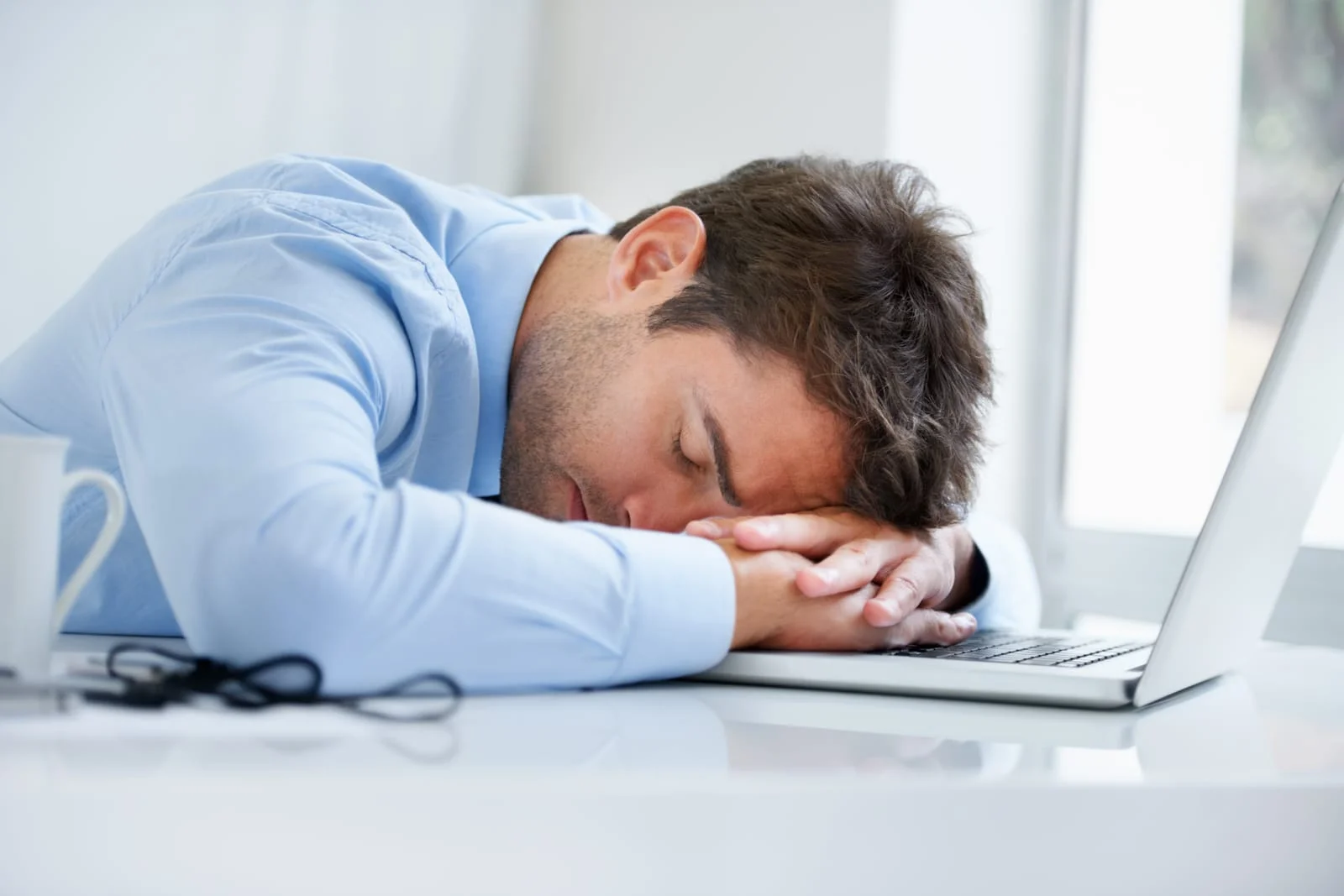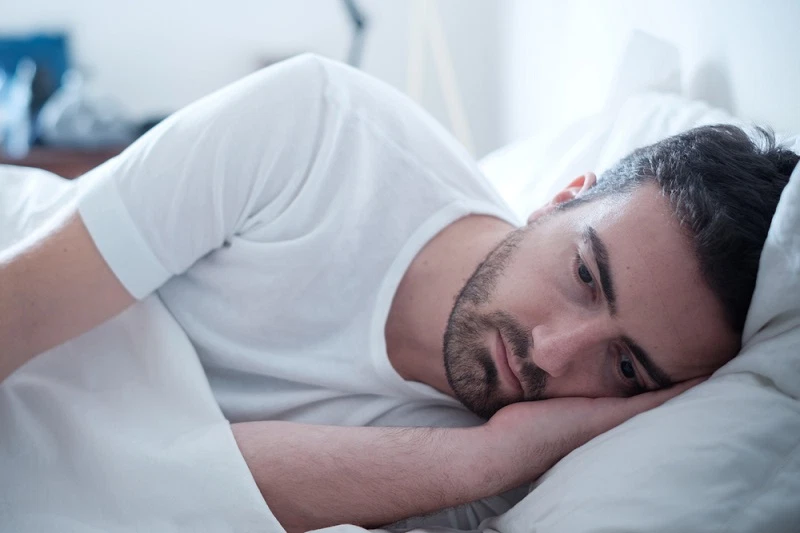This article will provide insights into why depression can cause fatigue and offer practical tips and strategies to manage and alleviate this tiredness.
Introduction
Can depression make you tired? Many people who struggle with depression or depressive disorders have experienced fatigue and low energy as the common symptoms. It can make it difficult to get out of bed in the morning, take care of your personal hygiene, or even go to work.
So, does being depressed make you tired, according to science? And if so, is there a reason why depression makes you tired? This article will explore the phenomenon of why depression makes you tired and provide tips and strategies for managing depression-related fatigue.

Understanding Depression-Related Fatigue
Does depression make you tired? Anyone who has ever struggled with depression knows that there are several symptoms like hopelessness and sadness, but there’s also a lack of energy and fatigue. Studies indicate that there is a link between depression and tiredness. But why does depression make you tired? It has to do with several biological mechanisms, mainly inflammation.
-The Link Between Depression and Tiredness
Several studies have explored why depression makes you tired, reviewing the biological mechanisms related to fatigue.
But there are secondary and tertiary reasons for depression-related fatigue that have to do with lifestyle, things that are well within your control.
For example:
- When people are depressed, they tend to consume junk food and comfort food. If someone who is depressed feels like they have low energy, they are more likely to consume high levels of caffeine to get through the day or sugary foods to give them a burst of energy, but in the end, this can compromise sleep quality, which exacerbates depression and fatigue. It also leads to higher inflammation and poor health.
- When people are depressed and experiencing fatigue, they tend to sit around and not do anything. Depression and low energy can exacerbate an already sedentary lifestyle. Whereas you might normally go to activities with friends and family, where you walk around for a bit, exercise regularly, and go for nature walks with your neighbor, depression might limit all of those activities, which means you aren’t getting the physical activity your body needs to stay healthy and to encourage better sleep and higher energy.
- When people are depressed, they are more likely to experience stress from Little Things, and chronic stress can exacerbate inflammation in the body, which is one of the key biological mechanisms science has related to depression fatigue.
-Biological Mechanisms of Fatigue in Depression
Studies have found that the depressive symptoms of fatigue are, in many ways, caused by inflammation; the mechanism that causes inflammation due to depression is considered an adaptive response to infections.
Under normal circumstances, there is a positive feedback loop between inflammation and depression, where inflammation can cause depression and stress.

Tips and Strategies for Managing Depression-Related Fatigue
Does being depressed make you tired? Yes. Are there ways you can manage your depression-related fatigue? Yes!
-Prioritizing Sleep Hygiene
The first thing you can do to address the link between depression and fatigue is to prioritize your sleep hygiene. Depression can significantly interfere with your sleep quality and quantity.
It’s not uncommon for people with depression to experience severe insomnia or hypersomnia. Insomnia is when inadequate sleep is achieved, but hypersomnia is when individuals sleep too often.
- Set up a routine where you go to bed at the same time and you wake up at the same time.
- Avoid taking naps throughout the day if you can. This is particularly important if you struggle with hypersomnia as a result of your depression and you have low energy.
- Stay away from screens a few hours before you go to bed. This might extend to keeping screens out of your bedroom entirely and replacing the alarm on your phone with a small electronic alarm clock so that you don’t have further distractions.
- Do some light stretching before bed to help you with your stress reduction and physical activity.
- Try to incorporate meditation before you go to bed.
-Regular Exercise and Physical Activity
Tangentially, exercise and physical activity are essential to managing depression-related fatigue. It can feel impossible to get the energy you need to go out and lift heavy weights when you are depressed, but any level of activity, no matter how moderate or mild, can help you improve your energy levels, boost your endorphins, and fight symptoms of depression.
Make it a point when you tell yourself that you have absolutely no energy to put on shoes and walk up and down your street. Something as simple as getting outside and walking for just 10 minutes at a time every day can help improve your mood and your sleep quality and reduce depression-related fatigue.
-Balanced Nutrition and Hydration
Balanced nutrition and hydration go a long way toward combating depression-related fatigue. When depressed, the body craves things like simple carbohydrates and sugars, and comfort foods. You might be less likely to drink water all day because you don’t have energy.
However, these types of foods can exacerbate inflammation, which is the cause of depression-related fatigue. Eating a healthy and well-balanced diet can give you better energy instead of leaving you sluggish or irritable.
-Stress Reduction Techniques
Practice stress reduction techniques. Anything you can do to reduce stress in your environment can go a long way toward improving sleep quality, giving you better energy, and reducing inflammation.
Chronic stress can cause perpetual inflammation, which leads to depression-related fatigue.
-Seeking Professional Help
Don’t be afraid to seek professional help. If you are asking, “Can depression make you tired?” chances are you are struggling with depression-related fatigue. When you seek professional advice from a qualified mental health professional, you can find ways to boost your energy naturally and improve your quality of life. This might extend to things like therapy or medication for an underlying depressive disorder, but no matter what it is, you deserve to be happy and live your best life.
Summing Up
Does depression make you tired? Yes, and why does depression make you tired? It has to do with the biological mechanisms tied to inflammation and chronic stress. That link means you need to use strategies that reduce your stress and inflammation, which include regular exercise, balanced nutrition, stress reduction techniques, and professional help if necessary. Explore all of these tips and seek help from mental health professionals to help you improve your quality of life.



